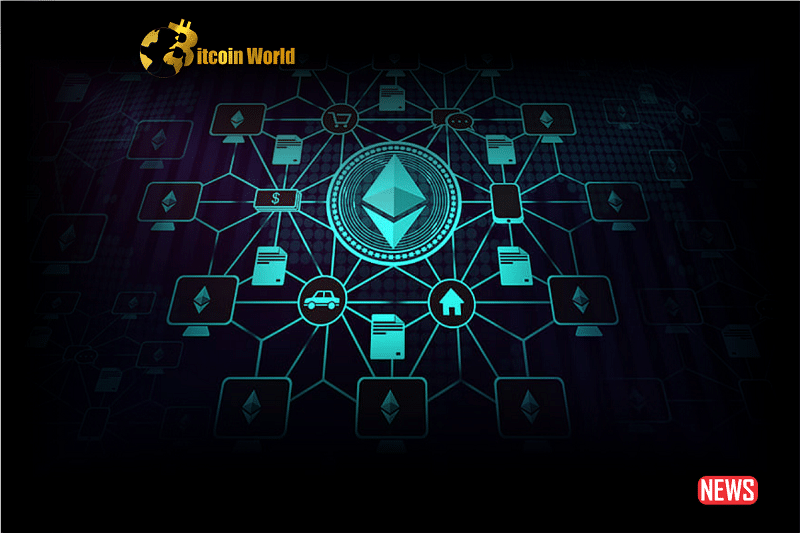In the fast-evolving world of Decentralized Finance (DeFi), security and trust are paramount. Imagine a world where you could instantly verify if a smart contract powering your favorite DeFi platform has been thoroughly audited, directly on the blockchain. Well, Ethereum developers are making this vision a reality with the exciting new ERC-7512 proposal! Let’s dive into how this innovative standard is set to revolutionize transparency and security in the DeFi space.
What is ERC-7512 and Why Should You Care?
ERC-7512 is a proposal that aims to standardize how smart contract audit reports are represented on the Ethereum blockchain. Think of it as a digital stamp of approval, directly accessible and verifiable by anyone interacting with a smart contract. This initiative, born from the collaborative minds of leading Web3 security experts and championed by Richard Meissner from Safe (formerly Gnosis Safe), addresses a critical need in the DeFi ecosystem: easy access to reliable audit information.
Currently, finding out if a smart contract has been audited often involves navigating through project websites, searching for scattered reports, and trusting centralized sources. ERC-7512 changes the game by bringing this crucial information directly on-chain, making it transparent and readily available.
Key Benefits of ERC-7512:
- Enhanced Transparency: No more digging around! Audit information becomes easily accessible on the blockchain for every user.
- Improved Security: Users can quickly verify the security measures taken for a smart contract before interacting with it, leading to more informed decisions.
- Boosted Composability: Smart contracts themselves can be designed to check for the presence of an audit, potentially leading to automated security checks and safer interactions within DeFi protocols.
- Standardized Verification: ERC-7512 aims to create a uniform way for auditors to sign and represent their reports, ensuring consistency and clarity across the ecosystem.
How Does ERC-7512 Actually Work?
The core idea behind ERC-7512 is to establish a standardized format for storing and accessing audit report information directly within the smart contract itself or linked to it on-chain. This includes vital details such as:
- Auditor Identity: Knowing who performed the audit is crucial for assessing its credibility.
- Audit Standards: Understanding the criteria and methodologies used during the audit provides context and assurance.
- Verification Status: Clearly indicating what aspects of the contract were verified and the outcome of the audit.
Imagine interacting with a new DeFi protocol. Instead of blindly trusting, you could simply check the smart contract on-chain and instantly see if it has a valid ERC-7512 audit record. This empowers users to make more informed decisions and reduces reliance on trust assumptions.
ERC-7512 vs. Soulbound Token Registry: A Decentralization Debate
While ERC-7512 is gaining momentum, the community is actively discussing the best implementation approach. An alternative suggestion involves using a registry of audits represented as non-transferable Soulbound Tokens (SBTs). Let’s break down the core of this debate:
| Feature | ERC-7512 Proposal | Soulbound Token Registry |
|---|---|---|
| Decentralization | More decentralized, as audit info is directly linked to or within the contract. | Potentially less decentralized, relies on a central registry (even if decentralized registry). |
| Complexity | Might be slightly more complex to implement initially, requiring changes to contract deployment processes. | Potentially simpler initial implementation, leveraging existing SBT infrastructure. |
| Flexibility | Offers more flexibility in how audit information is integrated with smart contracts. | Could be less flexible, potentially requiring standardized registry structures. |
| Verification | Direct on-chain verification by contracts and users. | Verification through querying the SBT registry. |
Proponents of ERC-7512, like Richard Meissner, argue that while a registry could coexist, standardizing what auditors sign is paramount for ensuring consistent verification across DeFi. The core principle is to embed audit information as closely as possible to the smart contract itself for maximum transparency and trust.
Smart Contract Audits: Not a Silver Bullet, But a Crucial Layer of Security
It’s vital to understand that even with ERC-7512 and widespread smart contract audits, absolute security in DeFi is not guaranteed. Audits are a critical security measure, but they are not foolproof. The recent incident with the BANANA token serves as a stark reminder.
Despite claims of undergoing two audits, a bug was discovered in the BANANA token’s smart contract shortly after launch. Interestingly, a quick ad-hoc audit by a Twitter user using ChatGPT AI chatbot swiftly identified the vulnerability! This highlights a few crucial points:
- Audits are point-in-time assessments: They capture the state of the contract at a specific moment. Changes after the audit can introduce new vulnerabilities.
- Audit quality varies: Not all audits are created equal. The depth, rigor, and expertise of auditors can differ significantly.
- Ongoing security is essential: Beyond initial audits, continuous monitoring, code reviews, and proactive security measures are necessary.
ERC-7512 is not intended to be a magic wand that eliminates all DeFi risks. Instead, it’s a powerful tool to enhance transparency, raise the security bar, and empower users with better information to navigate the DeFi landscape.
The Future of DeFi Security is Looking Brighter
The ERC-7512 proposal represents a significant step forward in making DeFi safer and more trustworthy. By standardizing on-chain smart contract audit information, Ethereum is fostering a more transparent and accountable ecosystem. As discussions and development continue, the crypto community is united in its commitment to building a robust and secure foundation for decentralized finance. Keep an eye on ERC-7512 – it’s a development that could fundamentally change how we interact with DeFi protocols and build trust in the decentralized future.
Disclaimer: The information provided is not trading advice, Bitcoinworld.co.in holds no liability for any investments made based on the information provided on this page. We strongly recommend independent research and/or consultation with a qualified professional before making any investment decisions.




